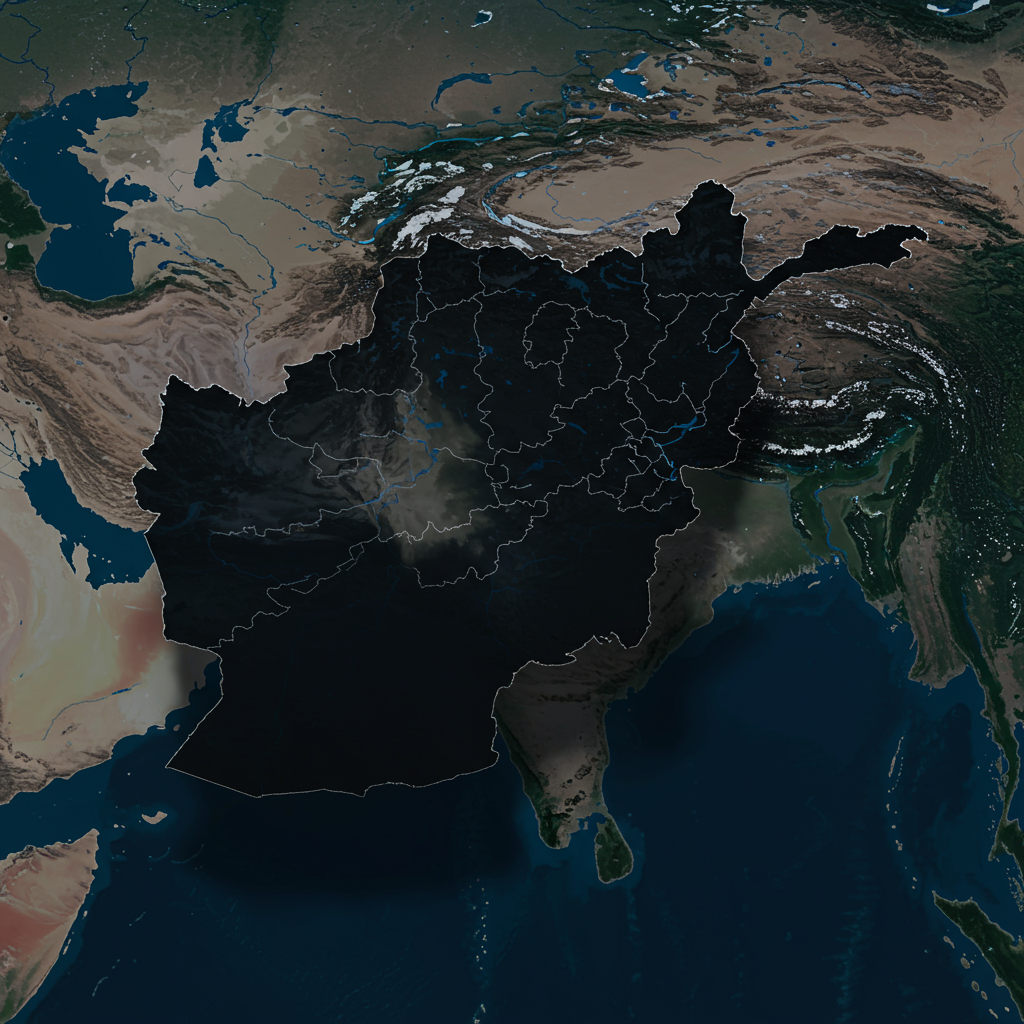The specter of a complete internet shutdown in Afghanistan casts a chilling shadow across the nation, threatening to plunge millions into digital isolation. What began as localized disruptions to fiber-optic services in key provinces like Kandahar, Helmand, and Balkh has ignited widespread fear, evoking a painful past where international communication required arduous journeys to neighboring countries. This isn’t merely about losing convenience; it’s a potential digital blackout that promises to sever vital lifelines, silence Afghan voices, and deepen an already acute humanitarian and economic crisis.
A Glimpse into the Past, a Fear for the Future
For many Afghans, the possibility of a nationwide internet cutoff feels like a step backward into a bygone era. Just a generation ago, contacting relatives abroad meant traveling physically to Pakistan to make a phone call. Today, the terrifying thought arises: will Afghans soon face similar pilgrimages merely to access the global internet? This dread is palpable, reflecting two decades of integration into the digital world, where online access has become as fundamental as food and water. The thought of returning to a time when a radio was the primary source of information underscores the profound fear of enforced digital isolation.
The Spreading Silence: Regional Disconnections
Last week saw internet services halted in several provinces, a move reportedly ordered directly by Taliban leader Haibatullah Akhunzada. The stated reason: to prevent “vice.” This directive, announced by Balkh provincial government spokesperson Haji Zaid on X (formerly Twitter), immediately triggered a wave of negative public reaction. Citizens argued that viable alternatives should be in place before implementing such a draconian policy. The partial shutdowns serve as an ominous precursor, signaling the potential for a total blackout that could effectively cut Afghanistan off from the world. This restrictive Taliban internet policy is not just about content; it’s about control, with devastating consequences for everyday life and global Afghan connectivity.
Beyond Communication: Afghanistan’s Digital Lifeline
A comprehensive internet shutdown would unleash an immediate and catastrophic ripple effect across all sectors of Afghan society. Businesses, already grappling with instability, would face instant disruption, paralyzing banking systems and halting trade. Online learning opportunities, a critical avenue for education and scholarships in a war-torn country, would vanish. National and international organizations, including vital NGOs and nascent e-government services, would encounter insurmountable operational challenges. For countless online workers, the internet is their sole source of income; its absence would spell job losses and economic despair.
On a personal level, the impact is equally profound. Many, like the original author, rely on online platforms to earn a living, showcasing their country’s beauty or connecting with global audiences. More critically, the internet provides the only reliable link to family members living abroad, whom many Afghans may not see for years. Cutting off this digital bridge would transform personal connections into agonizing silence, amplifying loneliness and anxiety. This act of self-imposed digital embargo would further marginalize Afghanistan globally, severely damaging its already struggling economy and exacerbating the economic impact Afghanistan already faces.
A Path Forward: Lessons from Global Connectivity
Instead of resorting to extreme measures, Afghanistan could draw lessons from nations that have successfully managed internet risks without resorting to total shutdowns. China, for example, transformed its economy after Deng Xiaoping’s “opening-up” policy in 1978. When internet use became widespread in the 2000s, Beijing recognized potential risks but chose to invest heavily in robust, home-grown internet infrastructure and sophisticated filtering systems. This approach allows the authorities to filter out “risky” content while keeping its 1.4 billion citizens connected to the global digital landscape.
The broader international context further highlights this. While 5G adoption in Africa, for instance, lags globally (only 1.2% access 5G compared to over 20% worldwide, according to a 2025 ITU/UNESCO report), many African nations have seen significant growth in mobile broadband. Countries like Rwanda, post-market liberalization, partnered with Korea Telecom to build a wholesale open-access 4G LTE network, achieving top-tier affordability. Even Somalia, amidst political challenges, saw robust mobile connectivity flourish as large telecom companies built extensive networks. This demonstrates that investment and strategic policy can foster connectivity even in complex environments. Moreover, the emergence of satellite internet providers like Starlink, now operating in 14 African countries, presents alternative solutions for broad access, hinting at technological pathways to bridge digital divides rather than widen them. Afghanistan already censors “immoral” videos; a technological solution to enhance existing filters is certainly feasible, far more effective than a blanket ban that punishes everyone.
The Ineffectiveness of Isolation
If the intention behind the proposed internet shutdown in Afghanistan is to pressure the international community for formal recognition, history suggests this strategy would be counterproductive. Isolation tends to alienate rather than influence. Diplomacy, even with unrecognised regimes, has proven effective. For example, Qatar has consistently mediated sensitive negotiations with the Taliban, successfully securing the release of US and British citizens, including American Amir Amiri in September 2025. This demonstrates that maintaining open communication channels, not cutting them off, is the path to achieving goals and resolving humanitarian issues.
The Human Cost: More Than Just Wires
The internet is no longer a luxury; it is an indispensable component of modern life, akin to other fundamental human needs. For two decades, Afghans have been netizens, embracing technological innovations and the advent of AI. To be forcibly disconnected from this global reality, relegated to a past era, is a terrifying prospect. The original author recounted checking their internet connection constantly while writing, fearing they would lose access before their story could be told. This acute anxiety underscores the profound psychological impact of such a threat.
Afghan stories matter. The world needs to hear them, and Afghanistan needs global support in times of hardship. A marginalized, disconnected, and poverty-stricken Afghanistan serves no one’s interests. The Afghan people yearn to remain part of the global community, to interact, learn, and contribute, not to be forced into full isolation. The choice between digital progress and devastating isolation rests on the policy decisions made today.
Frequently Asked Questions
What are the primary reasons cited for the internet shutdown in Afghanistan?
The ban on fiber-optic internet services, particularly in provinces like Kandahar, Helmand, and Balkh, was reportedly ordered by Taliban leader Haibatullah Akhunzada. According to Haji Zaid, a spokesperson for the Balkh provincial government, the justification given was to prevent “vice.” However, this reasoning has been met with significant public criticism, with many arguing that alternative solutions should be explored before resorting to a complete shutdown.
How would a nationwide internet cutoff impact Afghanistan’s economy and society?
A nationwide internet cutoff would have severe and immediate repercussions across Afghanistan. Economically, it would disrupt business activities, cripple banking systems, and lead to widespread job losses for online workers. It would also further destabilize the already struggling economy, acting as a “self-imposed embargo” that marginalizes the country globally. Socially, opportunities for online learning and scholarships would be eliminated, and vital communication with family abroad would cease, increasing digital isolation and hardship for millions.
Are there viable alternatives to a complete internet shutdown for managing content concerns?
Yes, the article suggests that Afghanistan could learn from countries like China, which has invested in robust internet infrastructure and sophisticated filtering systems to manage content without resorting to a total shutdown. Afghanistan already censors “immoral” videos, implying existing technological capabilities. Enhancing these existing filtering technologies to make them more effective is proposed as a more constructive approach, allowing the country to address content concerns while maintaining essential Afghan connectivity and avoiding the severe negative consequences of a complete internet blackout.




